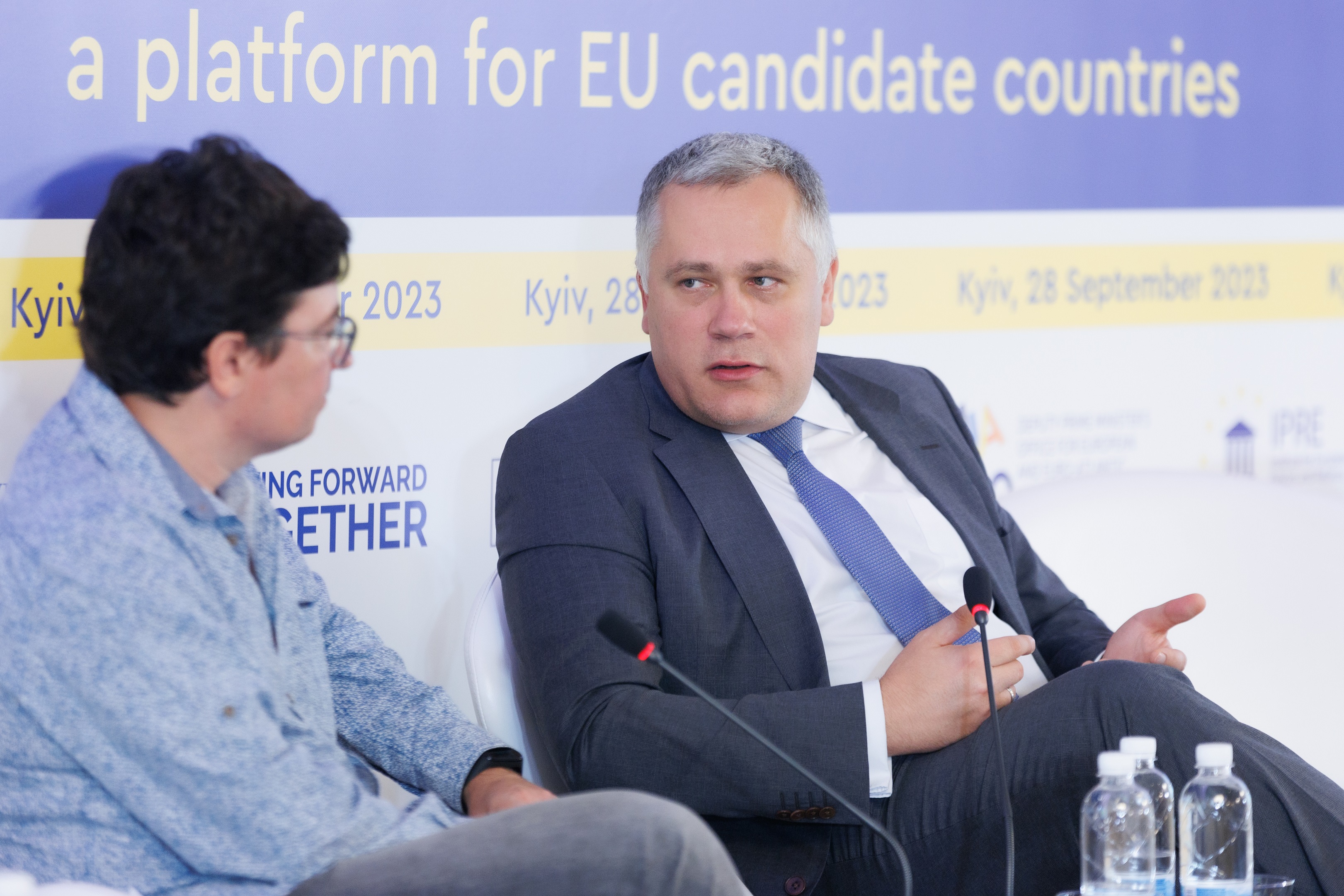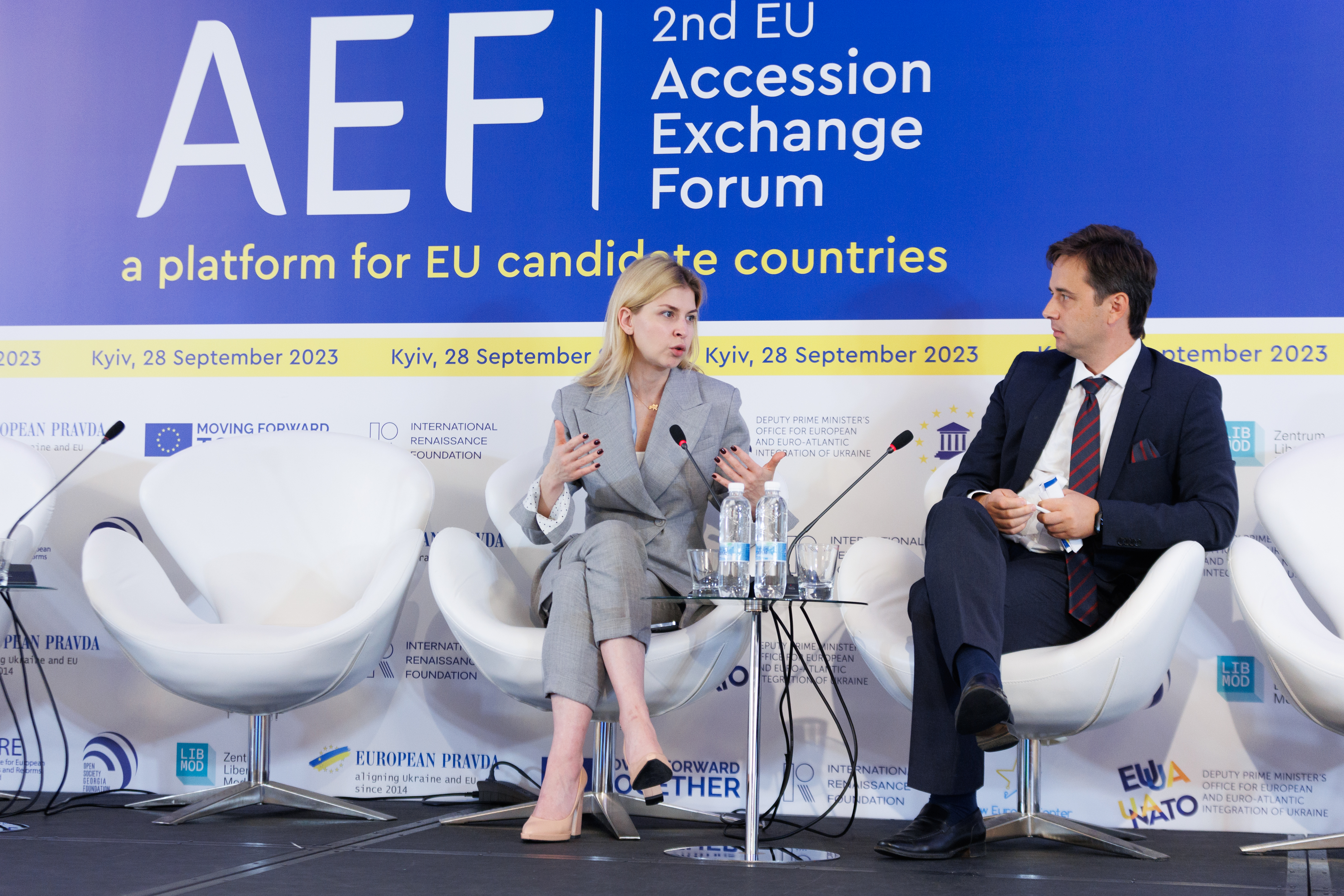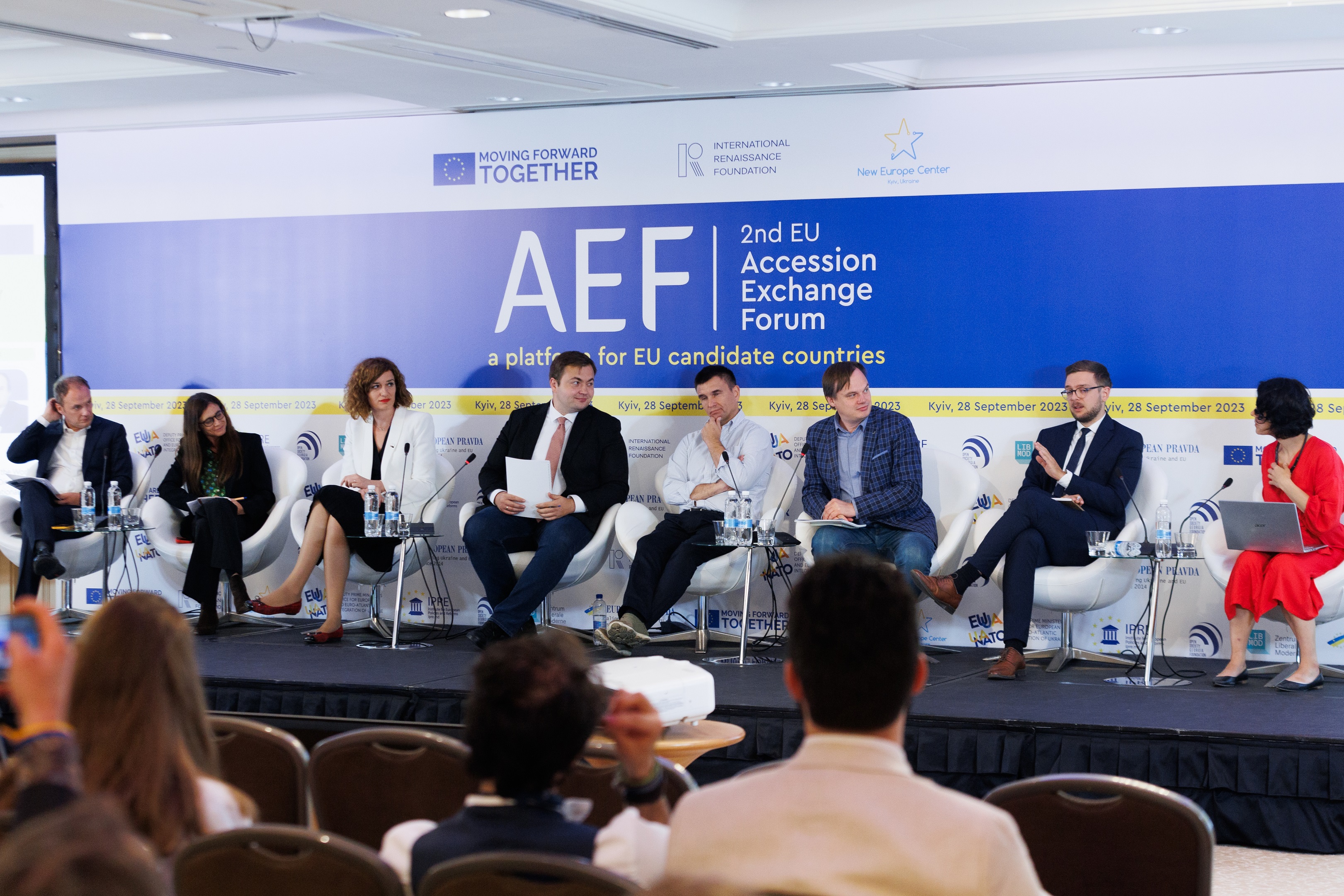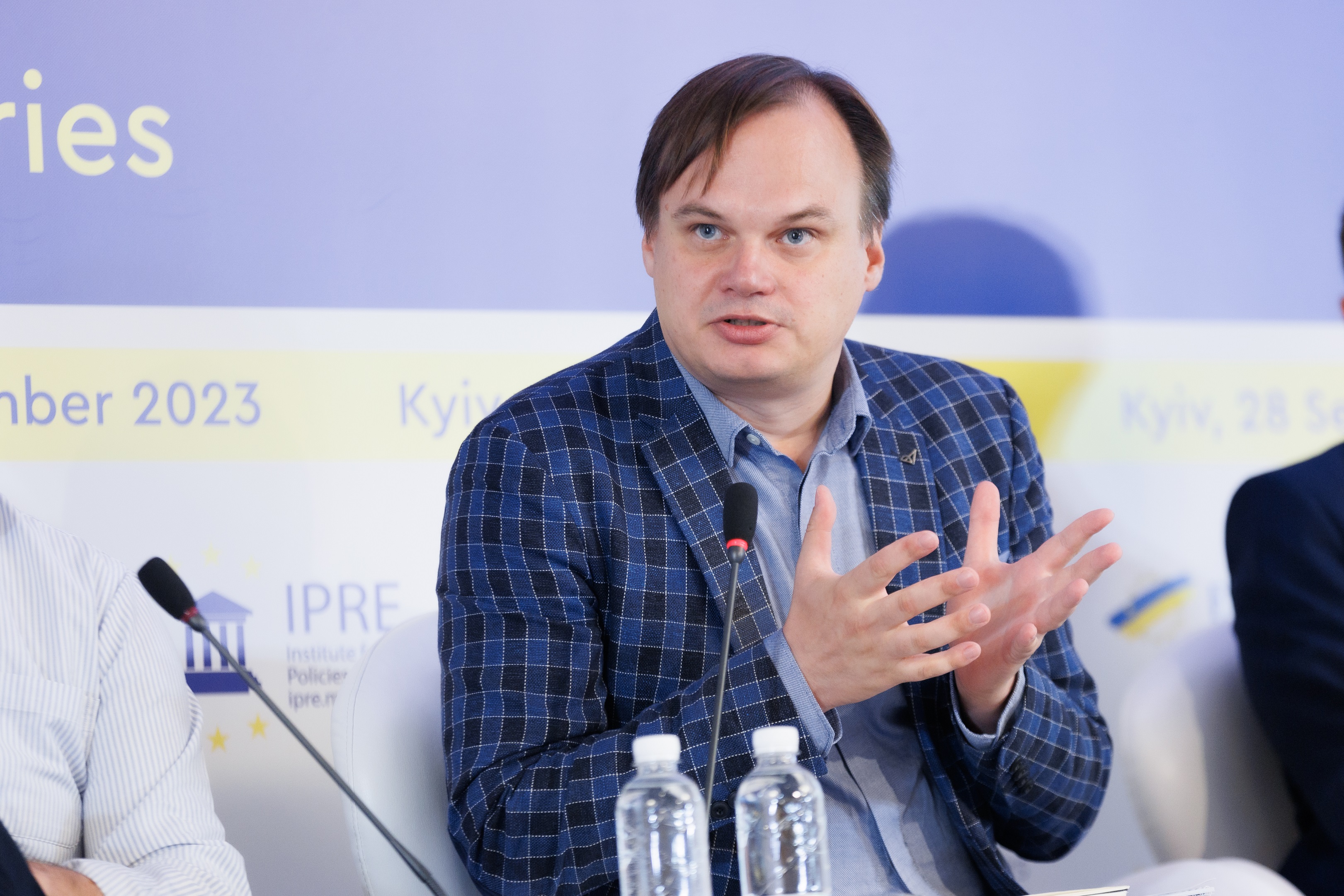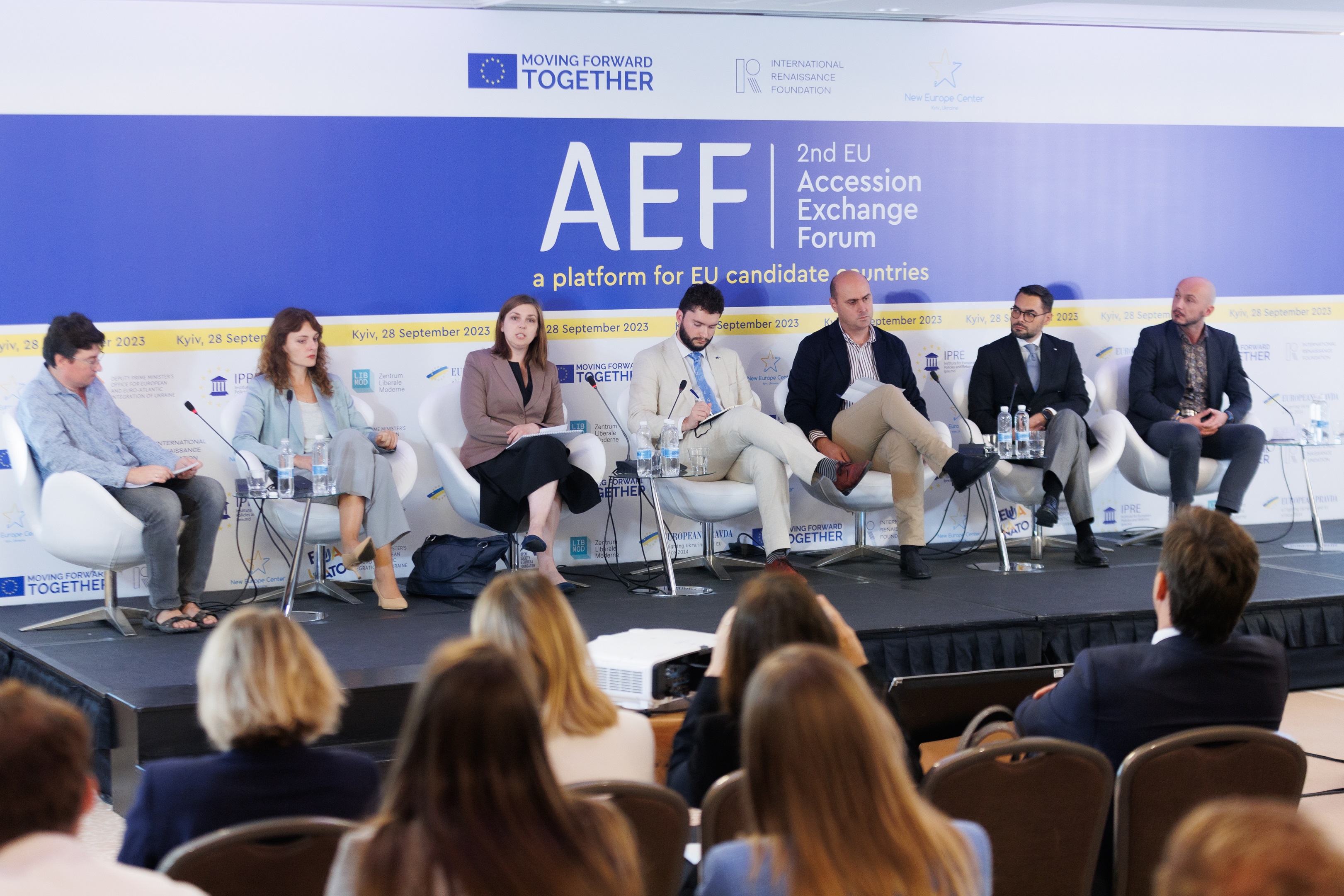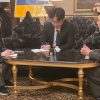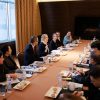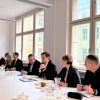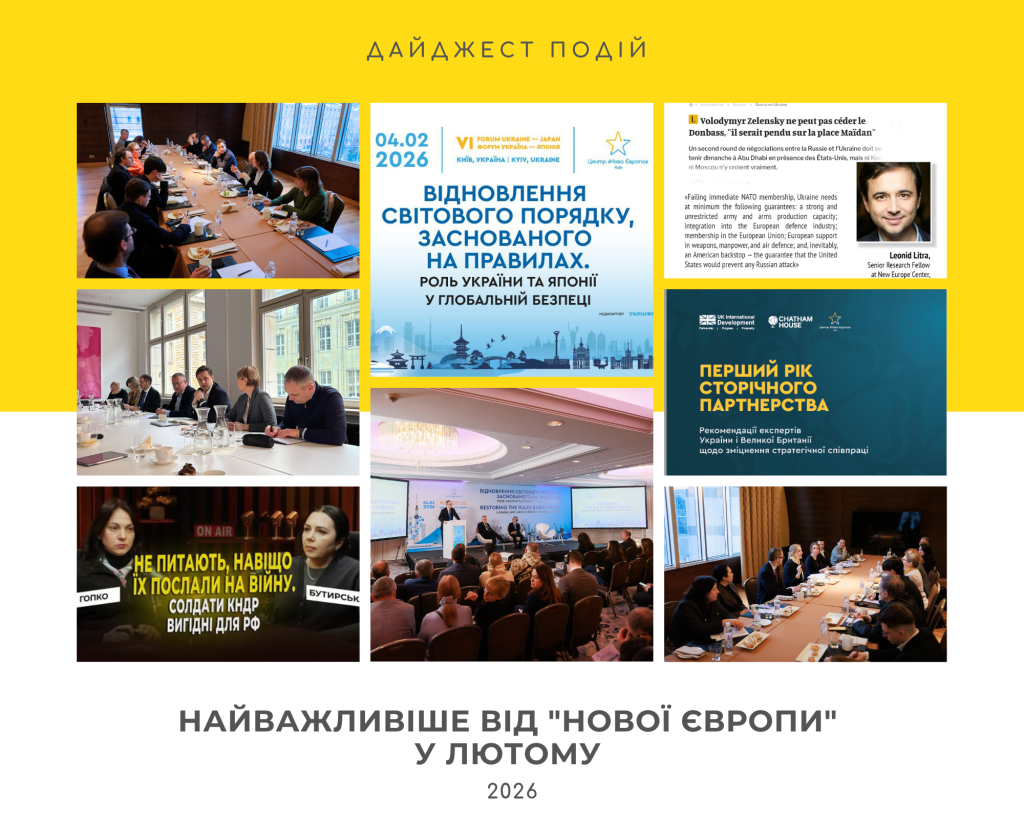On September 28, 2023, the New Europe Center organized the 2nd EU Accession Exchange Forum with the participation of high government officials and leading experts in Kyiv.
The event was dedicated to exchanging thoughts on the accession process, discussing good practices, new ideas, and lessons learned, and exploring the opportunities in the relations between European Union, countries of Eastern Europe, and Western Balkans. Almost 100 participants took part in the Forum.
The discussion panels were devoted to the following issues:
- the Russian war challenges for Ukraine’s EU integration;
- the reform of the EU for new members;
- reforms in the candidate countries.
During the Forum the 5th Candidate Check was presented. Detailed analytics is here.
Below you will find some key points from our speakers
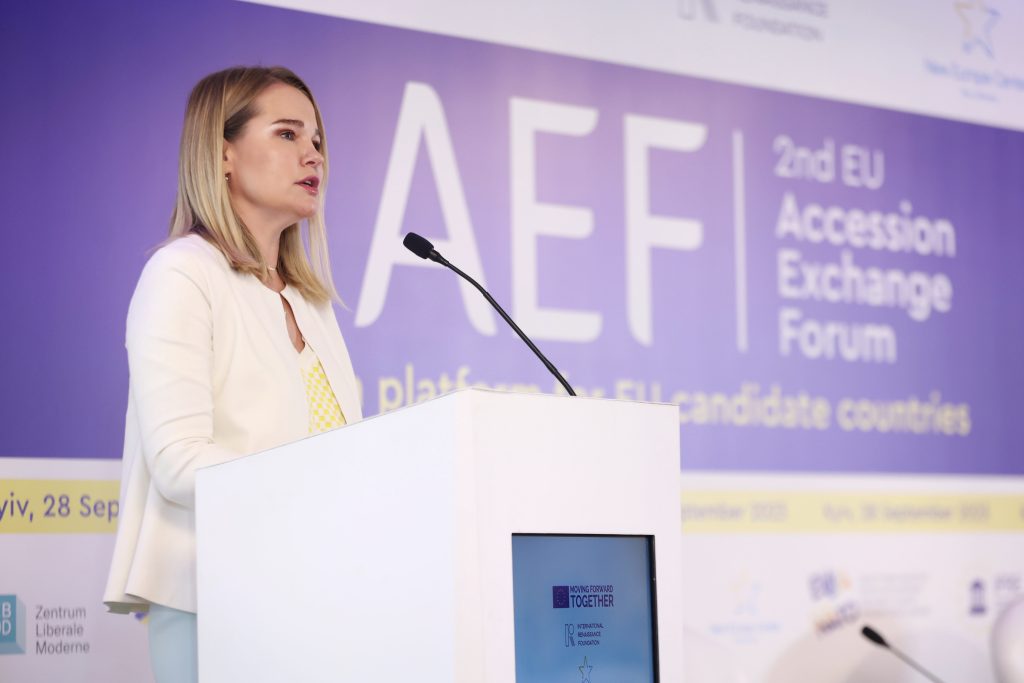
Alyona Getmanchuk, Director of tne New Europe Center, Ukraine:
“We’ve identified 3 major challenges for EU enlargement so far and we will have 3 discussion panels reflecting those challenges in their topic. The first challenge is the EU accession process under unprecedented military aggression in Europe since World War 2. The second challenge is internal EU reform which obviously will have an impact on all future enlargement moves. And the last huge challenge – reforms in candidate countries. Candidate status proved to become an effective tool for pushing important reforms in the right direction.”
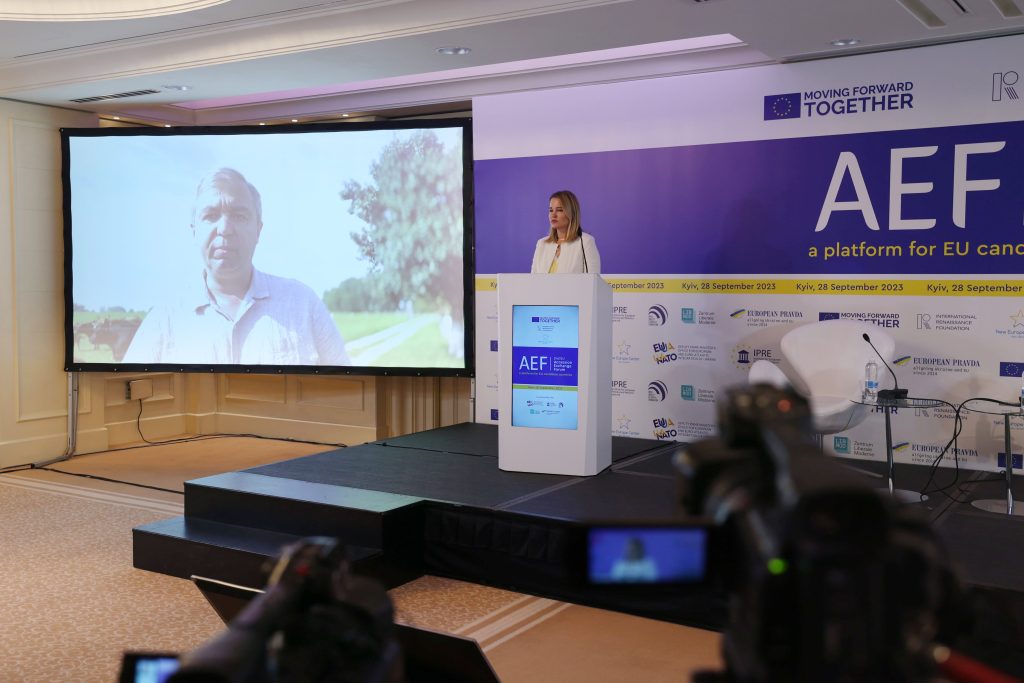
Oleksandr Sushko, Executive Director of the International Renaissance Foundation (via prerecorded video):
“We will build our meeting in order first of all to discuss the path of reforms in the candidate countries and then we will look closely to the lessons learnt from the past experiences of the other countries which are candidates. This experience proves that along with the positive achievements we’ve had something wrong. So we have to discuss the experience of the other countries in order to avoid typical mistakes and build the proper path to the future.”
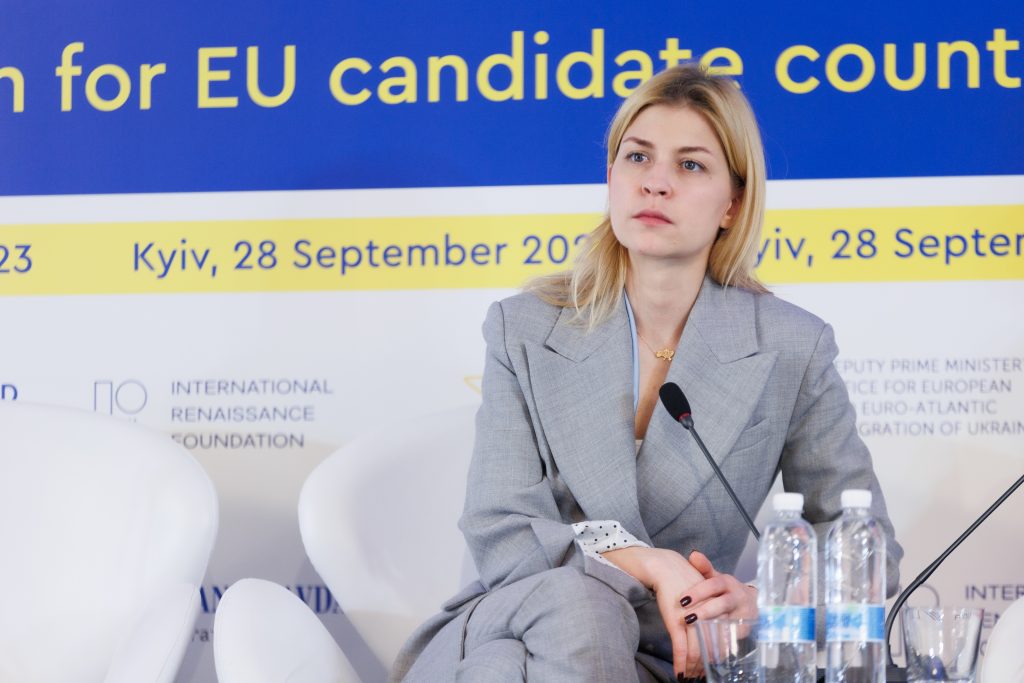
Olga Stefanishyna, Deputy Prime Minister for European and Euro-Atlantic Integration of Ukraine:
“Based on the progress we have managed to show on all seven recommendations and commitment to reforms agenda generally has left no room for discussion whether the assessment would be positive and Ukraine has not delivered something that would not make it possible to open the accession talks. So, opening the accession talks is not the case where Ukraine still has to deliver something. There is an understanding that the accession talks might be opened for Ukraine. Generally we have a consensus of all member states on that.”
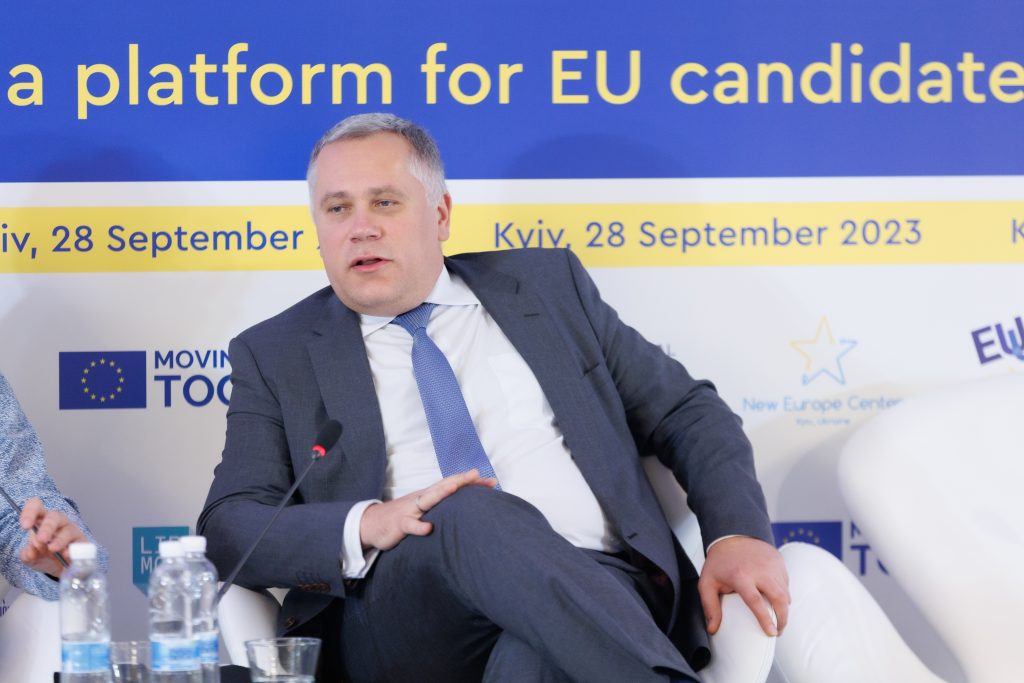
Ihor Zhovkva, Deputy Head of the Office of the President of Ukraine:
“What is very important, I am sure that Ukraine will have a strong voice. It’s understandable in each and every capital of the member states of the European Union that you cannot discuss anything, as far as the future of the EU is concerned, without the voice of Ukraine. They are already counting us in. Not de jure unfortunately, but certainly de facto.”
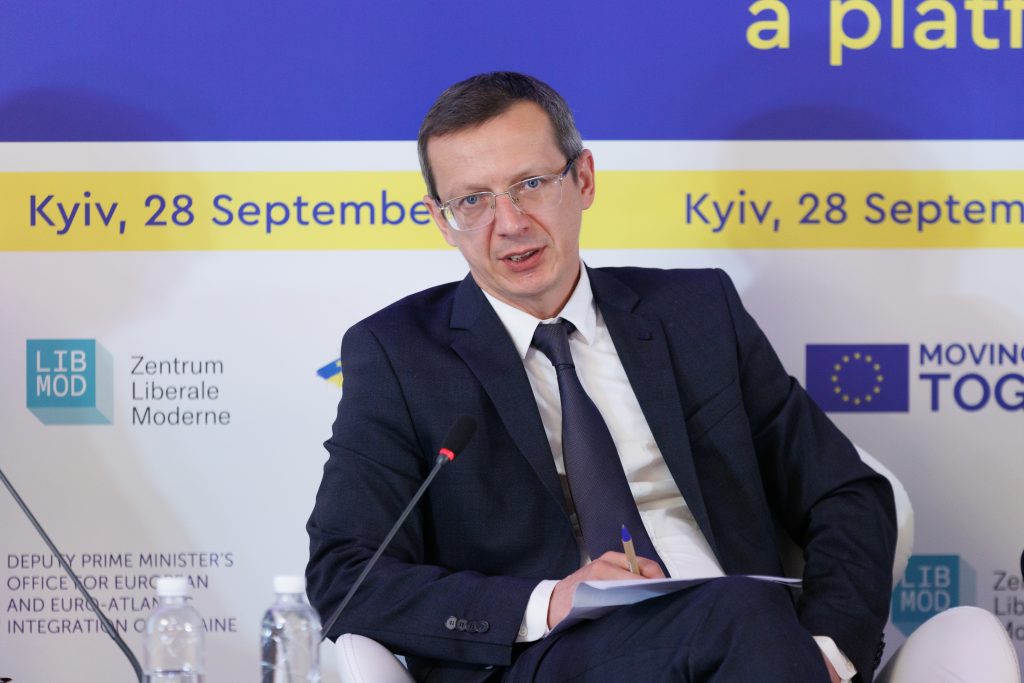
Oleksandr Ilkov, Director General at Government Office for Coordination on European and Euro-Atlantic Integration:
“The accession process that now takes place has its peculiarities. First of all, it is its high speed and intensity. But speed does not mean the reduction of quality. “
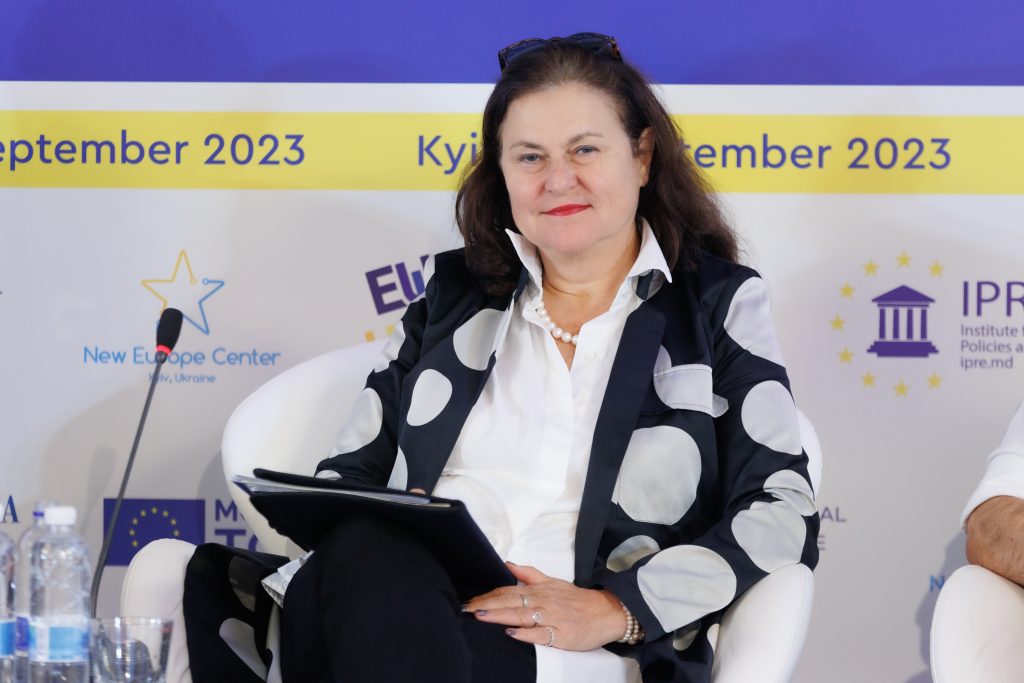
Katarina Maternova, Ambassador of the European Union to Ukraine:
“I am very much subscribed to the notion that if it wasn’t for the unfortunate and tragic escalation of the war and invasion on February, 24 last year we wouldn’t be discussing the issues of the Forum. For all the obvious reasons there was a lack of consensus on EU enlargement previously. It was only the war that created the approximate cause for that consensus. But one element which was extremely important in the positive assessment by the leaders to invite Moldova and Ukraine as candidate members was based on internal transformations in the countries. Thanks to the fact that we had very deep association and trade agreements that went through a plenty of domestic reforms with huge emphasis on governments, rule of law, anti-corruption, building of institution and regulatory regimes, we have received the basis to discuss all this.”
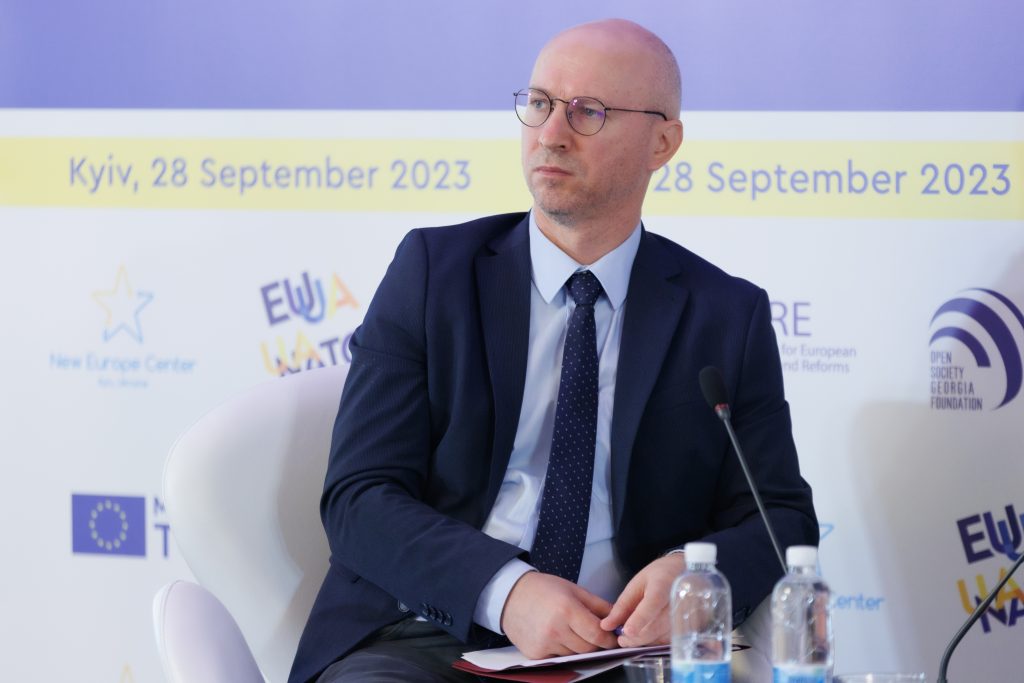
Stanislav Secrieru, National security adviser to the President of the Republic of Moldova:
“There are several impacts of war on EU accession. First, the security problem became stronger. The perception of the enlargement process has changed from transformation and economic development of the country to security dimension. Second, EU integration has become a more urgent issue. We don’t have decades to do accession and make progress to join the EU. Third, we have to do two things simultaneously: defend ourselves and do reforms to pursue European integration. This needs adjustments and more assistance from the EU. But we see the accession process not only in the way we receive assistance to get to the EU but as a way to demonstrate through practical examples that we are showing solidarity with EU countries.”
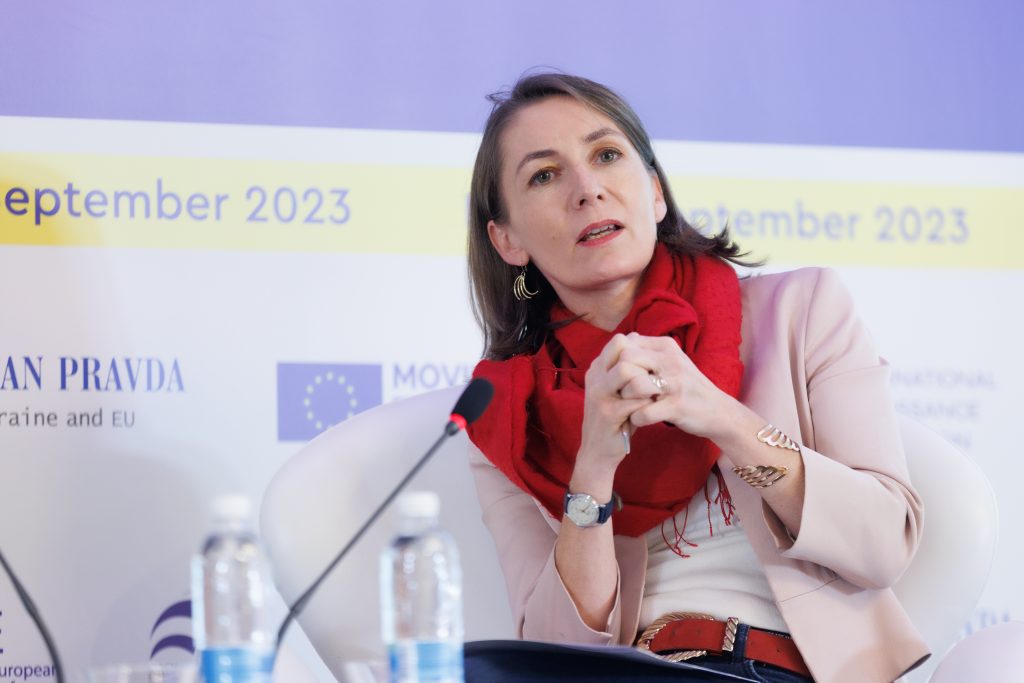
Claudia Major, Head of the International Security Division at the German Institute for International and Security Affairs in Berlin:
“EU accession and NATO integration are interlinked. The war accelerated these two processes in a way unthinkable before. I would even say that NATO membership now is a precondition to EU accession. We had a big boost in the accession process which gradually goes down to a more normal speed. And the big challenge now is to keep that speed.”
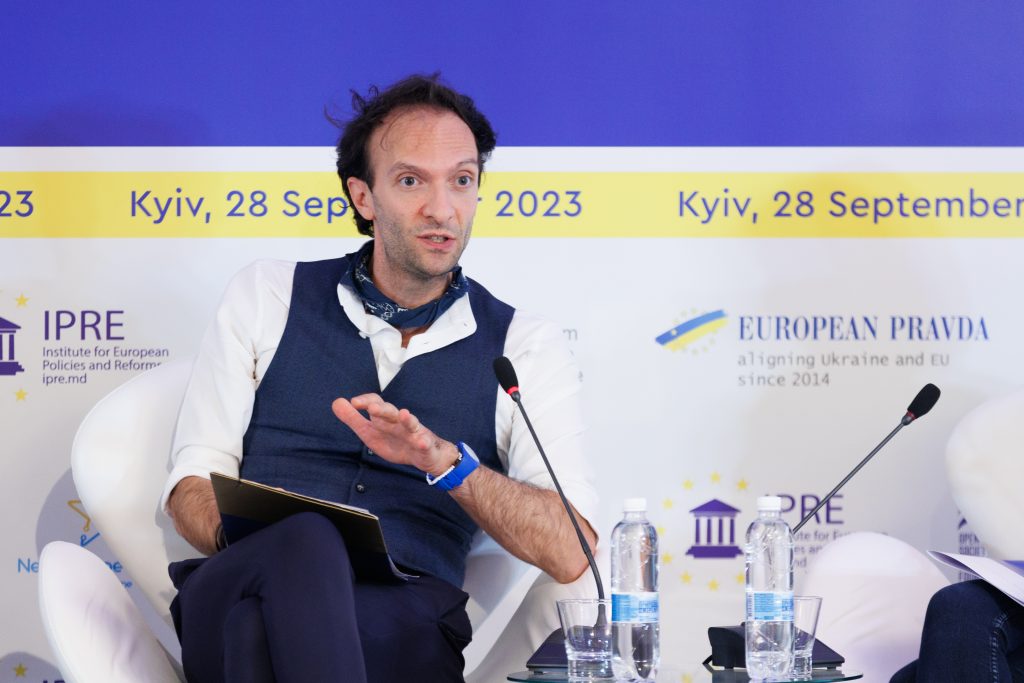
Pierre Haroche, Lecturer in International Relations and International Security at Queen Mary University of London:
“The key variable in the question of support of Ukraine by the allies is not the length of the war. It’s the feeling that Ukraine is victorious. When there is an impression that actually we are investing into victory, the numbers rise again.”
Key messages by Olga Stefanishyna during the 2nd EU Accession Exchange Forum
Key messages by Ihor Zhovkva during the 2nd EU Accession Exchange Forum
Key messages by Katarina Maternova during the 2nd EU Accession Exchange Forum
Photos from the 2nd EU Accession Exchange Forum
Video of the 2nd EU Accession Exchange Forum
The EU Accession Exchange Forum is organized by the New Europe Center in partnership with the Office of the Deputy Prime Minister of European and Euro-Atlantic Integration of Ukraine, the International Renaissance Foundation, the Institute for European Policies and Reforms, the Soros Foundation in Georgia and the Center for Liberal Modernity, Germany. European Pravda became Forum media partner. The Accession Exchange Forum is taking place with EU support, within the EU-funded “European Renaissance of Ukraine” project implemented by the International Renaissance Foundation.



